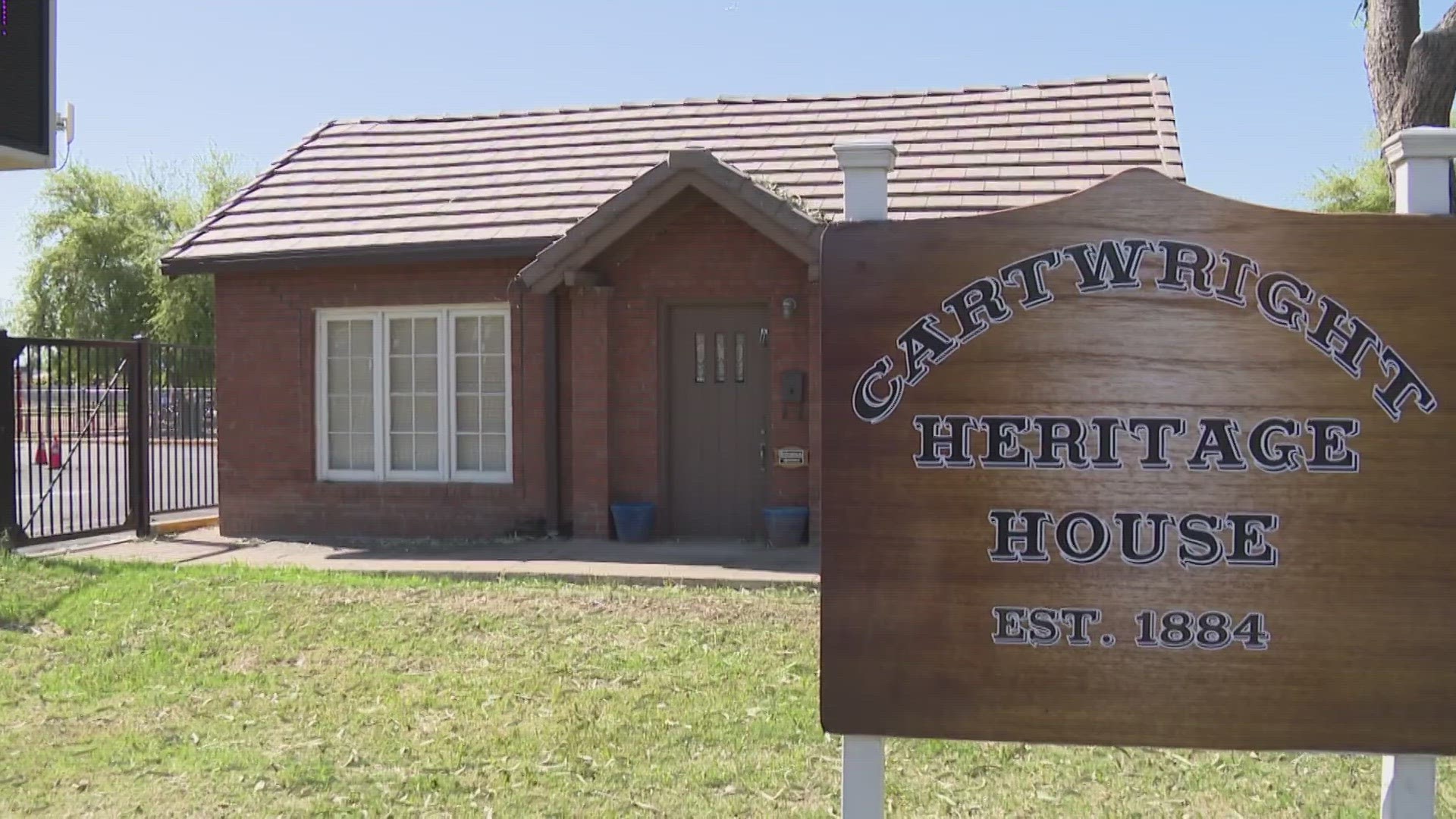PHOENIX — On the corner of a Cartwright School District campus is a small red-brick building. With its dusty trim and whitewashed windowsills, it looks old -- and from the outside, you'd never guess that it was full of artifacts predating Arizona.
It's called the Cartwright Heritage House, and the building itself was constructed in 1928. But the land it sits on has an even deeper history. For a time it was a museum used to teach students about Arizona's past, but now the only thing closing it off was a small, cheap padlock.
But on a little table at the back of the entryway is a small black book. It sits dusty and well-worn, next to a carrying case.
It's a Bible. And Phoenix's Official Historian Steve Schumacher believes that it's the oldest thing in the entire building.
"The first thing I saw was that Bible and I'm quite literally, I physically changed. I mean, the hair on my arm stood up, just, wow, wow, this -- this really is a treasure trove," he told 12News, barely able to contain his excitement.
The Bible's first page is signed by Sarah E. Cartwright: a signature nearly two centuries old. Schumacher thinks it was the Cartwright family's personal Bible, brought with them when they immigrated to the Territory of Arizona. While the house and the Cartwright school were built sometime later, the Bible could date back to the 1860s.
The Bible isn't the only thing waiting inside. Just past the front door, the air is heavy with history.
A dusty piano greets you as you walk in. One wall is lined with shelves filled with dolls, toys and trinkets. If you head back through the kitchen you can find even more.
A hand-cranked washing machine. A copper license plate from 1927. A quilt that took almost 20 years to make. A doll cherished by a little girl from the 1870s.
Some of these items were donated later, but many of them are from the earliest days of American settlement in Arizona: Used, loved, and left by the family that brought them here.
Schumacher knew the house held historical significance. But said he never expected to find something like that.
"We had an idea what [the house] was just by some of the old newspaper articles I was able to find, but... My God, to see it in person."
After all, newspapers weren't enough to describe the treasure trove inside.

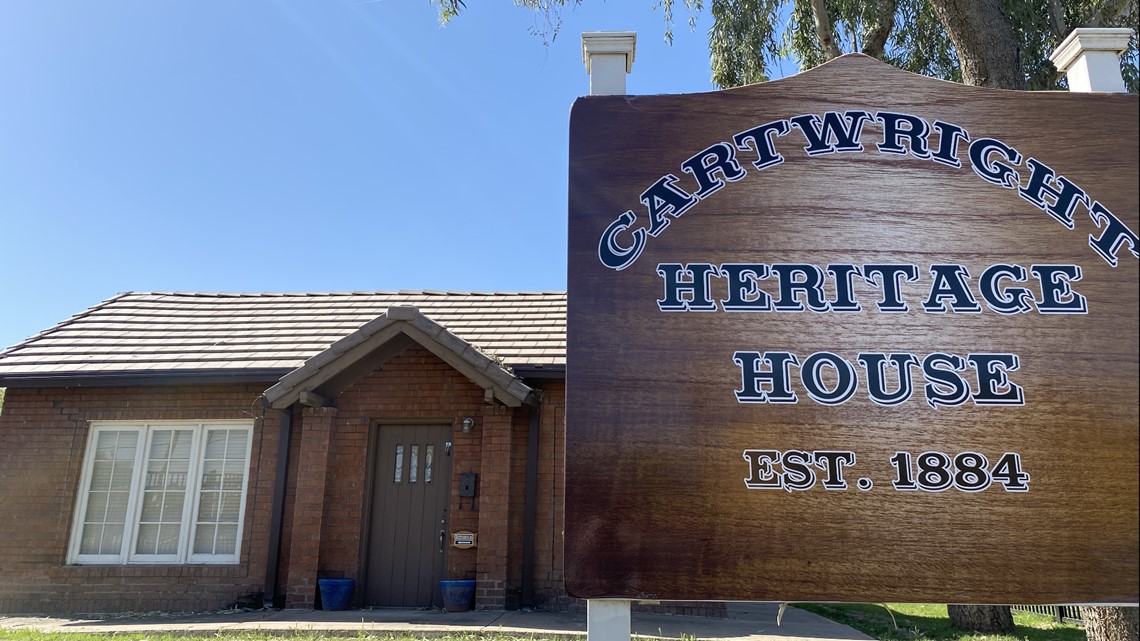
How was it found?
When Victor Rodriguez went to work one April morning, he never expected that he'd be unlocking Phoenix's past.
Rodriguez is the director of Public Relations with the Cartwright School District, and just a few weeks ago he got a call from Schumacher. One of Rodriguez's school buildings was on the National Register of Historic Places, and Schumacher wanted to know more.
For a time, the building was used to teach students about Arizona's past, but the project eventually fell by the wayside and was locked up.
After speaking with District Superintendent LeeAnn Aguilar-Lawlor and Principal Vicki Wingfield, the group was able to set up a tour. School administrators and eager researchers gathered around as Rodriguez undid the single padlock holding the front door closed.
None of them could believe what they found.
"The first thing that really crossed my mind was my grandmother, and then the stories that I always heard from my grandmother," Rodriguez said. It was like he'd been swept into one of her stories.
"Oh my God, I feel like I was really going back like over 100 years, you know?"
What was the house used for?
Rodriguez and Schumacher believe that the house was being used as a museum in the late '80s and early '90s. It was a way to show kids how people in Arizona used to live, but its history dates back to before Arizona was even a state.
In 1869, a man named Reddick Jasper Cartwright brought his wife and as many as 14 children from Illinois to California. Five years later they immigrated to the Territory of Arizona, settling in Prescott, then putting down roots west of Phoenix in 1877.
"That's what amazed me," Schumacher explained. "Coming out here, you'd think given the water situation you'd want to be around other people or near the river, and that property was neither one of those."
But despite its remote location, the Cartwrights started a farm right in the middle of what would eventually become Maryvale.
By 1884, Schumacher said there were enough people starting to live in the area that they needed a way to teach their kids. Californian homesteader, Tom Brockman, donated the land the school now sits upon. With a land grant signed by President Ulysses S. Grant, the Cartwrights built their schoolhouse.

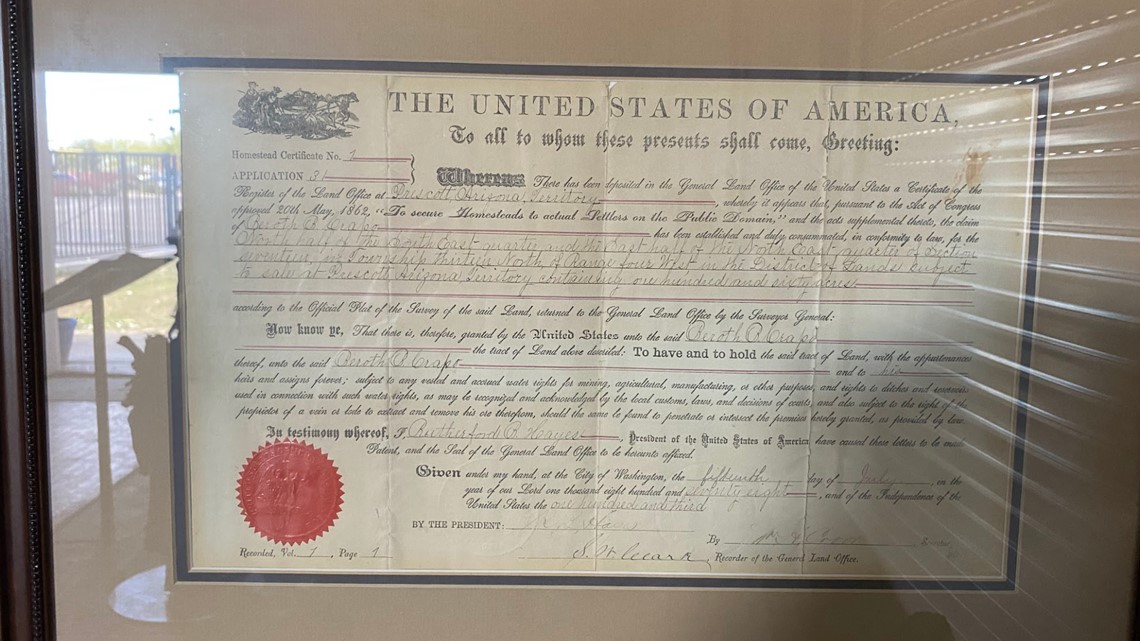
Eventually, the Cartwright family moved on -- Schumacher said to Cave Creek -- but the school remained and flourished.
In 1928, the district built and gifted a residence to Glenn L. Downs, the first Superintendent of Cartwright School District. It would house Downs and his family for some thirty years.
Time went on and by 1958 the building transitioned from a home, to a district office, to a museum by the mid-'80s. Researchers believe that a flood of donations contributed to many of the items now preserved in the home.
Many of the items in the home are numbered, which tells Rodriguez and Schumacher that there's a catalog, somewhere, of everything the house contains. Schumacher says it's the key to answering all of the team's questions.
"Once we're able to match you know, archival material with the different items, that'll be exactly what we need."
What's next for the house?
Right now, the exact future is unclear. The Cartwright Heritage House has been unlocked for less than a month, and the district team has their work cut out for them.
But Rodriguez said this find presents an opportunity like no other.

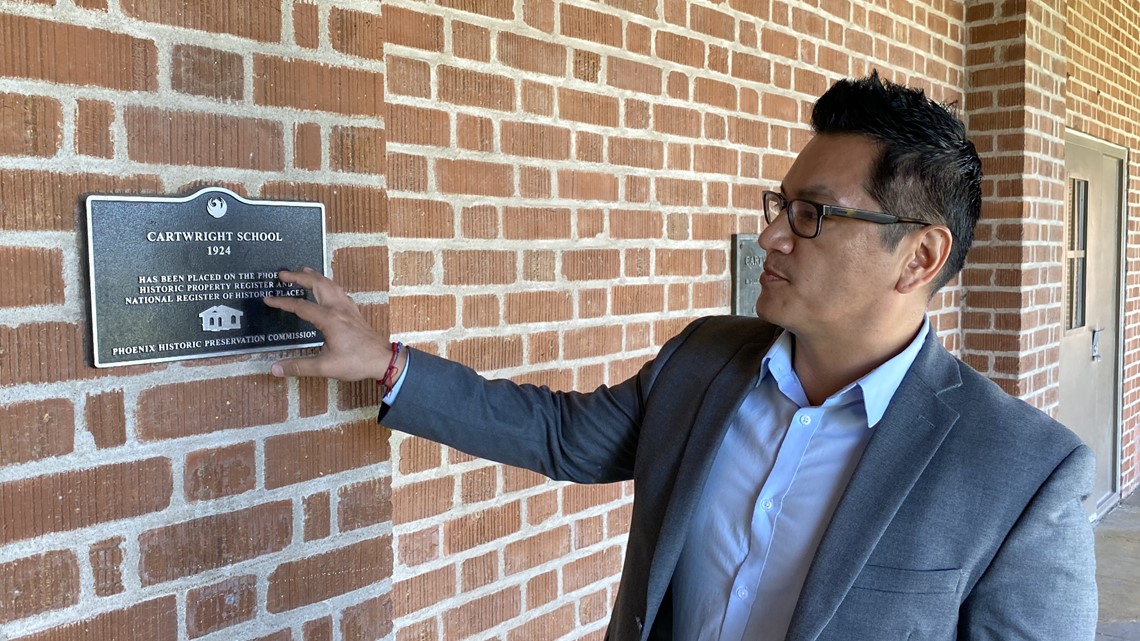
Superintendent Aguilar-Lawlor and Principal Wingfield are working to turn the home into a place of learning once again. With Schumacher's support, they've partnered with Arizona State University to uncover the full depth of what the house means for Maryvale.
Students with ASU's Public History program will help faculty discover, sort and document all of the items within the house.

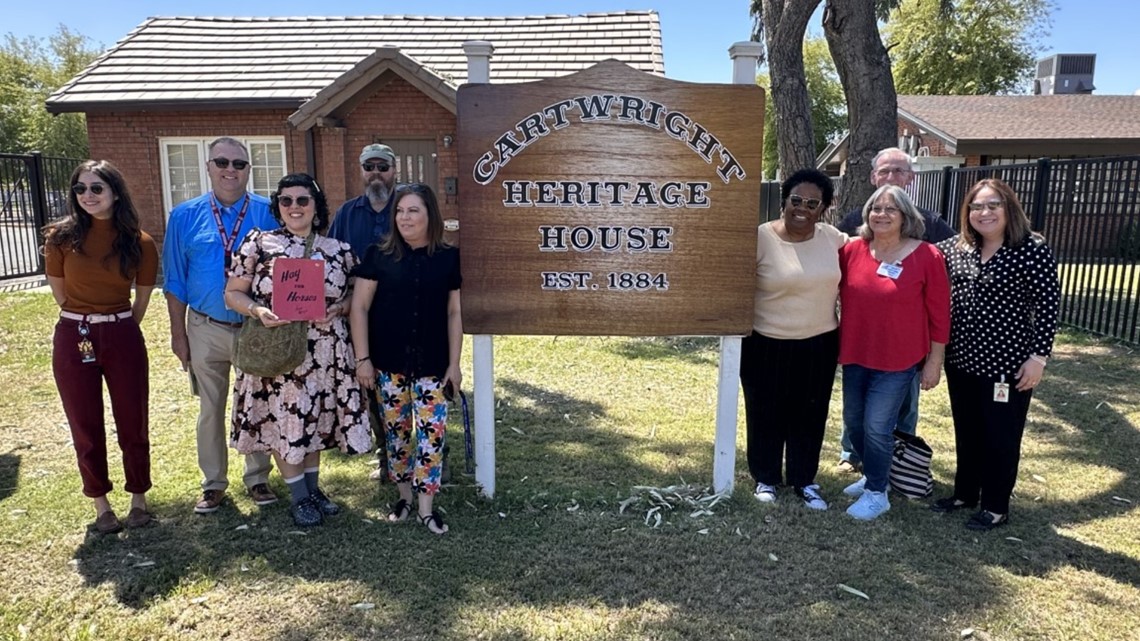
"The whole idea is to be able to create a catalog and identify every artifact here and just find out more or less the history value when those items were made," Rodriguez said.
"And we also want to be able to identify how many of those items, those artifacts really belong to the Heritage House and how many of them were donated."
The district has already started work to convert the house into a space that the community can visit and walk through to learn about Phoenix's history.
"I think the ultimate goal is to get it in a condition where children can come through there and understand what the area was like in the 1800s," Schumacher said.
And Schumacher said that the project is in good hands with the executive team.
"They are not only passionate about this project. They understand the significance of it. And they are incredible caretakers of it. I'm just thoroughly impressed," he stressed.
The project is part of a push by Phoenix Mayor Kate Gallego to uncover the lost stories of the city's past. And the Cartwright Heritage House is one more piece of the puzzle.
For the time being, school administrators have asked 12News not to disclose the exact location for security reasons. But they hope that by next year, the house will be open for the public to enjoy.
As Rodriguez steps out of the story and back into Maryvale, he said that the past is a new point of pride for his neighborhood.
"I know that we just, we always want our community to feel proud," he said.
"I mean... There's a lot of history in this place!"
VERSIÓN EN ESPAÑOL: 160 años de historia pura fueron descubiertos en una escuela primaria de Maryvale
>>Editor's note: Dates in this article have been updated to more accurately reflect the timeline of the Cartwright Heritage House. Due to an editorial mistake, the article initially read that the house had been constructed in 1884.
WE ❤ ARIZONA
Explore amAZing people, places and things across our state on our 12News YouTube playlist here.

